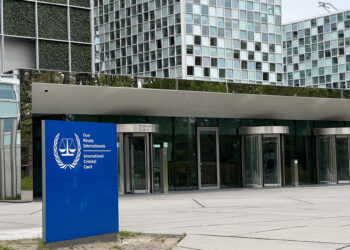Recent Election Lack Legitimacy, National Dialogue Needed To End Crisis
(Washington, D.C., 12/23/2022) The Biden Administration should end U.S. support to Tunisia's dictatorial government headed by President Kais Saied, pursuant to U.S. laws, including the Foreign Assistance Act, banning aid to governments that have undergone a coup, said the Tunisian United Network (TUN), the Council on American-Islamic Relations (CAIR), and Democracy for the Arab World Now (DAWN).
In light of the nearly 90% boycott of the December 17 legislative elections by Tunisian citizens, the U.S. government should urge Tunisians to organize an inclusive national dialogue bringing together all parties, civil society organizations, and ordinary Tunisian citizens to resolve the current political and economic crises and reestablish democratic governance in the country.
TUN President Mongi Dhaouadi explains:
"Kais Saied has single-handedly crashed the country into a cliff, and now, all Tunisians and the international community must come together to rescue this sinking ship. It is time to turn the page on the failed political and economic policies of the last 17 months and bring Tunisians together to restore democracy and solve common problems."
From December 15-17, President Saied organized a sham legislative election, banning all political parties from participation and allowing candidates to run only as independent individuals. Initial voter turnout of 11.22 percent indicates that nearly 90 percent of voters boycotted the election, registering the lowest electoral turnout recorded in modern history. The next two lowest recorded election turnouts were Haiti at 18% in 2015 and Afghanistan at 19% in 2019. The Carter Center observed the election on the ground and concluded that "the elections lacked legitimacy and fell short of international and regional standards." Other international election observation organizations, like the International Republican Institute (IRI) and the National Democratic Institute (NDI), refused to participate in the undemocratic process.
"The newly elected legislature lacks electoral legitimacy and does not represent the will of the Tunisian people. If convened, it would provide no check on presidential powers," said Raed Jarrar, DAWN's advocacy director. "President Saied has eliminated the independence of the judiciary, abolished the Supreme Judicial Council, and will most likely do the same for the proposed constitutional court."
After seventeen months of increasing power consolidation, there is no evidence that President Saied will restore democracy in Tunisia. Since seizing power, he has failed to adopt any meaningful reforms. Instead, President Saied has taken a series of unconstitutional, anti-democratic actions, including shuttering the parliament; dismantling the constitution; arbitrarily detaining hundreds of parliamentarians, politicians, journalists, and civil society activists; prosecuting and convicting civilians in military courts; dissolving the Supreme Judicial Council; firing dozens of judges without due process; and violently suppressing protests. Earlier this week, an "anti-terrorism" judge in Tunisia ordered the arrest of former Prime Minister Ali Larayedh on trumped-up charges no one is taking seriously.
Pursuant to U.S. law, the United States should restrict foreign assistance to Tunisia in recognition of the coup that has taken place in the country and impose Global Magnitsky and other sanctions against Tunisian officials implicated in grave violations of human rights. The White House and Department of State should encourage the Tunisian government to restore the Supreme Judicial Council, revoke all of the presidential decrees since the July 2021 coup, and urge Tunisians to organize truly inclusive crisis talks that bring together all political parties and civil society leaders.







